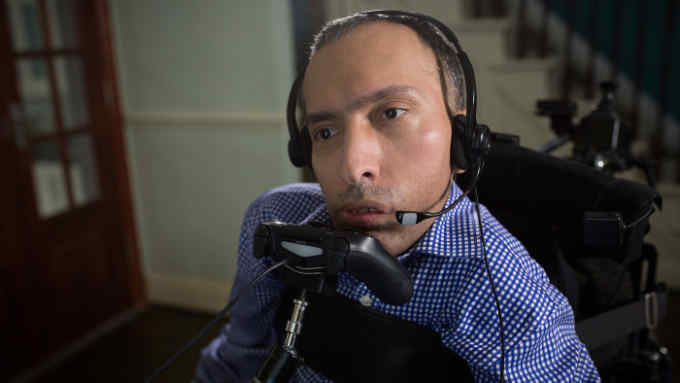Digital transformation will be dramatic and painful

Simply sign up to the Technology sector myFT Digest -- delivered directly to your inbox.
Artificial intelligence has the potential for dramatic disruption of everything from manufacturing to education and mental health. Its future applications are limitless and unknowable — we are too early in its evolution to know how far it could replicate and exceed the human brain’s capabilities. Forecasts vary of how many jobs could be replaced or created by AI and sister technologies such as blockchain, big data, hyperconnectivity and the internet of things.
The new jobs will require advanced skills and “digital mindsets”, and the transition will be dramatic and painful. Governments, businesses and civil society will need to rethink the assumptions and mechanisms that underpin our world. To avoid a crisis, they should think about five areas: raising technological literacy, ownership of technological innovation, micro-business creation, ensuring technological advances serve humanity, and the consequences for health and wellbeing.
An ill-prepared society is the first and biggest risk. To prepare for change we must understand its drivers. Governments, business leaders, front-line staff, teachers and parents need to understand the scientific and technological developments shaping the future. This is both a personal responsibility and something businesses and governments could address through in-service training and adult education. Free or cheap online platforms already provide such content — the challenge is to encourage their use and build them into personal development and back-to-work programmes.
In relation to jobs, a deeper understanding of AI would clarify why so many analysts are raising concerns about ownership of critical future technologies. Our concern is that a few powerful investors and corporations could dictate life on earth. They could develop or acquire the core technologies and applications that underpin every business activity, government decision, social interaction and financial exchange. One solution is strict controls on the extent of such intellectual property monopolies. Another option would be to take the IP for critical technologies such as AI into public ownership and make it available to businesses of all sizes, which could pay a share of revenues into public funds to finance future developments. Such a fund might also finance a guaranteed basic income for people displaced by automation.
No one can predict how many jobs automation will displace over the next decade, but we can make reasonable assumptions that large numbers of tasks will be automated, even in professions such as medicine, law and finance. Estimating the scale of total task replacement is difficult, however. For example, would safer autonomous vehicles mean the beginning of the end for car repairers and motor insurance, and would these businesses reinvent themselves and create new roles?
The only thing that is certain is that people will need to take more responsibility for their income through the creation of small and micro-businesses where they are in control. Employers can play a huge role by providing start-up training and mentoring through the early phases of business creation for employees they are replacing with technology. The most forward-thinking might even co-invest with such start-ups to get them off the ground and potentially give them a route to market. Governments could provide similar services and easy-to-use online platforms for business creation, marketing, networking, financial management, invoicing, accounting and tax submission, enabling founders to focus on developing their business.
Finally, workplace pressures and the threat or reality of technological replacement are already having adverse effects on physical health and mental wellbeing across a range of occupations. An accelerating pace of change seems likely to exacerbate this. Online tools could help people deal with stress in a confidential manner and help train the next generation of mental health professionals.
Clearly, the accelerating pace of technological development could bring significant benefits. There are also genuine concerns that a great number of people will be left behind as wealth and power are consolidated into the hands of the few.
Rohit Talwar, Steve Wells and Alexandra Whittington are futurists with Fast Future

Comments